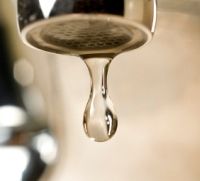

A hosepipe ban has been imposed on parts of Southern England as water levels still remain low. At the end of February, Environment Secretary Caroline Spelman hosted a drought summit called in response to very low groundwater levels. At the time, Ms Spelman warned of a possible hosepipe ban, which has now come to fruition.
Southern Water, South East Water, Thames Water, Anglican Water, Sutton and East Surrey, Veolia Central and Veolia South East are going to be enforcing restrictions on water use from 5 April as the South East and East Anglia face the worst drought in 30 years.
Although the drought conditions are mainly contained in the South East and East of England, the Environment Agency has warned that drought could spread north as far as East Yorkshire, and as far West as the Hampshire-Wiltshire border. As a result, some measures to save water are being pushed onto businesses and farmers to try and mitigate more restrictions later in spring.
Farmers are expected be amongst the worst affected, particularly those who grow fruit and vegetables. A reduction in production could mean that the price of fruit and vegetables increases whilst water is scarce.
The hosepipe ban means that hosepipes cannot be used on gardens, plants, cars or boats for "recreational use", to fill ponds, pools or fountains, or to clean paths, walls, windows or other artificial outdoor surfaces. If someone breaches the ban, then they could be prosecuted and fined up to £1,000.
Ms Spelman said a temporary ban would, "Help protect the public water supply in the areas most affected by the record low levels of rainfall we have experienced over the last 17 months. We can all help reduce the effects of drought by respecting these restrictions and being smarter about how we use water. Taking action now to reduce how much water we use will help us all in the future."
Some tips to save water include:
For more information, see the: